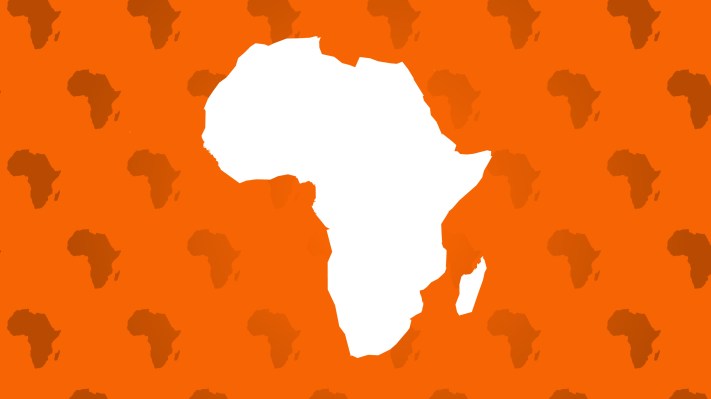
In Africa, Y Combinator is known to be a major backer of most of the continent’s well-known startups.
Two of the most talked-about in the last two quarters — Flutterwave and Paystack — are YC-backed. Their successes (Flutterwave’s billion-dollar valuation and Paystack’s rare exit to Stripe) have greatly increased YC’s appeal in the eyes of founders on the continent with local investors clamoring to get their portfolio into the accelerator.
Unlike last year where Y Combinator held its Demo Day, both winter and summer in two days, it’s a single day for this Winter 2021 batch.
This is the accelerator’s third online demo day, its second all-virtual class and remote pitch session following its decision to go fully remote from the previous batch (Summer 2020).
A total of 319 companies pitched today from 41 countries drawing attention from more than 2,400 investors. However, only ten African startups pitched and similar to other batches; most of them are fintechs.
Other startups offer e-commerce fulfillment, edtech and B2B food marketplace services. Five startups represent Nigeria; three are from Egypt, and one from the Ivory Coast and Kenya. Here they are building.
Most of the gig workers in Egypt are unbanked, and it’s difficult for digital platforms to pay them for their services. The traditional method would be to use cash or third-party institutions.
Founded by Omar Ekram, Dayra is trying to solve this via an API. With its platform, Egyptian businesses can offer financial services including loans to unbanked workers and customers in the country.
Djamo (Ivory Coast)
While there has been a huge profusion of financial services that have emerged in recent years in Africa, there’s still a huge underserved gap in Francophone Africa. In fact, less than 25% of the population is banked.
Djamo acts as a challenger bank and offers banking solutions to break into this huge untapped market and help with financial inclusion in the region. Hassan Bourgi and Regis Bamba founded the Ivorian startup.
In African public schools, the student-teacher ratio can be as high as 50:1. This doesn’t aid effective learning. Other options like private schools can be costly.
Kidato, an edtech startup founded by Sam Gichuru, have classes with student-teacher ratios at 5:1. They also offer the same international curriculum as private schools in the country but collect much lower fees.
Flux (Nigeria)
It takes days and sometimes weeks to send money from the U.S. to Nigeria and most African countries. There’s also the problem with expensive fees.
Flux, a Nigerian remittance startup, is using crypto to tackle this. Via an application and from a wallet, people can convert fiat into crypto and send it to the wallets of people in other countries who convert back to fiat if they choose. The startup was founded by Ben Eluan, Osezele Orukpe, and Israel Akintunde.
Financial stress plays a major role as a top distraction for employees. NowPay, a startup founded by Sabry Abuelenien and Mostafa Ashour, bridges that gap and provides several benefits for employers that choose to address this area of employee wellness proactively.
The company enables corporates to offer salary advances to employees. It also improves savings, spending, budgeting, and borrowing for employees by building products that tackle every vertical.
Mono (Nigeria)
Due to the proliferation of financial services in Africa, it has become extremely difficult for banks and fintechs to combine users’ data from multiple points and make sense of it.
By streamlining various data in a single API, Mono helps companies and third-party developers retrieve vital information like account statements, real-time balance, historical transactions, income, expense, and account owner identification. Abdul Hassan and Prakhar Singh founded the company.
In the U.S. or the U.K, you can set up a business account in minutes but it can take hours and days in Nigeria. And most of this is still executed offline and on paper.
Prospa is a neobank for microbusinesses in Nigeria founded by Frederik Obasi and Rodney Jackson-Cole. It helps these businesses make international payments to more than 10 countries including China, Kenya, the U.K., and the U.S.
When merchants launch their e-commerce businesses, they can easily manage the end-to-end operations in the early stages. But as they begin to grow, managing their own operations can become difficult.
This is a burden for most businesses in Egypt and Flextock, a startup founded by Mohamed Mossaad and Enas Siam, solves it by providing an end to end fulfilment service. They manage a business inventory, pick, pack and ship orders while providing real-time visibility and insights into their products.
For some individuals and merchants, shipping can be a painstaking process. To operate efficiently, they partner with one or more service providers or build their delivery operations themselves.
Sendbox describes itself as a “fulfillment by Amazon for African merchants.” The company provides shipping, escrow payments, among other services, to social commerce merchants in Nigeria. Emotu Balogun and Olusegun Afolahan founded the company.
For small and mid-sized restaurants in Nigeria and most of Africa, food procurement can be a complex process to manage.
Founded by Tunde Kara, Olumide Fayankin, Gatumi Aliyu, and Wale Oyepeju, Vendease solves this problem by building a marketplace that allows restaurants to buy directly from farms and food manufacturers.



